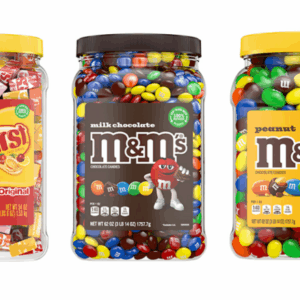PakTech research demonstrates how life cycle thinking can combat climate change

Image credit: AdobeStock_1133433685
Amid ongoing concerns about plastic waste, a recent study commissioned by PakTech reveals a significant shift in industry conversations.
Drawing insights from 500 packaging professionals across the UK, Germany, France, Spain, and Italy, the research highlights a move away from the idea of eliminating plastic altogether toward a more nuanced approach: responsible, informed use.
The findings show that over 85% of respondents acknowledge that plastic remains essential in many consumer packaged goods (CPG) sectors. Simultaneously, 67% report their companies have set sustainability targets to reduce plastic use or are actively transitioning to more sustainable plastics.
Gary Panknin, PakTech’s sustainability officer and supply chain manager, explained the motivation behind the research: “We aimed to understand the real-world challenges faced by European manufacturers and co-packers. The key insight is that while companies are not abandoning plastic packaging, they are seeking ways to move away from virgin and single-use plastics. The real challenge is helping brands overcome barriers to using more recycled plastics and making smarter, data-driven material choices.”
The research underscores a common misconception: that material debates are often reduced to binary choices — plastic versus paper or fibre — without considering the full environmental impact. Perceptions about recycled plastics vary across Europe. UK respondents are most likely to view recycled plastic as more sustainable than fibre (63%), followed by Spain (52%) and France (51%). In Germany and Italy, opinions are more balanced, with a near-equal split favouring fibre.
Different job functions also influence opinions. Marketing teams tend to be more skeptical of recycled plastic, while sustainability and operations teams are more supportive of its use. Despite widespread awareness of high-density polyethylene (rHDPE) for its durability, density, and cost benefits — 80% of industry professionals are familiar — perceived barriers remain. Many believe that recycling alone doesn’t make enough environmental difference, fuelling hesitations about its adoption.
However, life cycle assessments conducted by PakTech challenge these perceptions. Their analysis indicates that rHDPE handles can significantly reduce environmental impacts compared to traditional paperboard carriers, with a carbon footprint ranging from just 0.022 to 0.034 kg CO₂-eq—two to five times lower than paper alternatives.
The disconnect between sustainability ambitions and actual practices is a key theme of the report. Approximately two-thirds of respondents say their organizations have ESG targets focused on smarter plastic use. Yet, when it comes to implementing these goals, opinions diverge: some prioritise switching from virgin plastics to fibre, others focus on increasing recycled plastics, and many aim to boost recycled content in multipacks.
Functional roles influence perspectives: sustainability and operations teams tend to favour increased recycled plastic use, whereas marketing and procurement departments often prefer fibre, valued for its branding flexibility. Despite the advantages of fibre for design, recycled plastics — particularly rHDPE — offer superior environmental performance and less waste, making them a compelling choice for brands committed to authenticity and transparency.
As regulatory pressures tighten under the EU Packaging and Packaging Waste Regulation and consumer expectations continue to evolve, packaging professionals are increasingly seeking materials that balance circularity, efficiency, and compliance. Panknin emphasised: “Not all plastics are created equal. When evaluated on performance, cost, and environmental impact, recycled solutions like rHDPE can often surpass expectations. The narrative is shifting from simply using less plastic to using the right plastic for the right purpose, supported by credible data and life cycle assessments.”
The research signals a maturing industry mindset — moving toward responsible material selection that aligns with sustainability goals, operational needs, and regulatory demands, ultimately fostering a more circular packaging economy.






